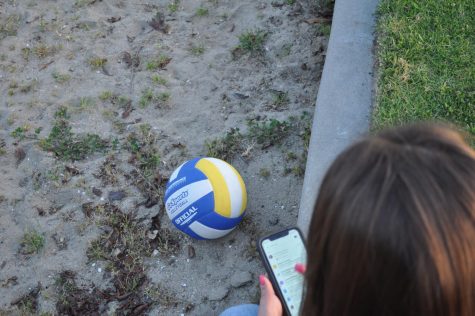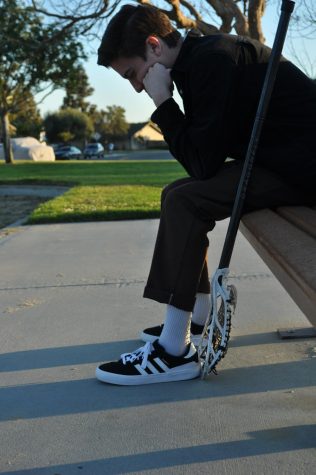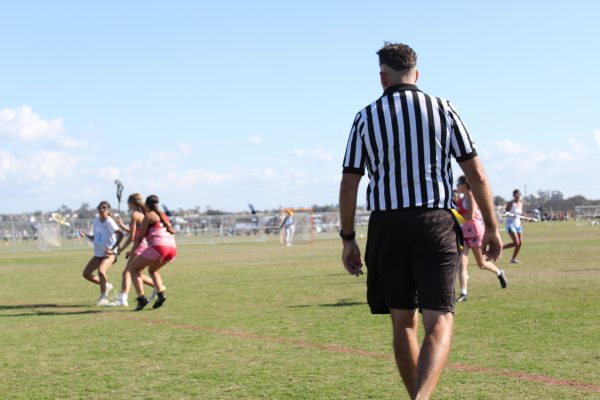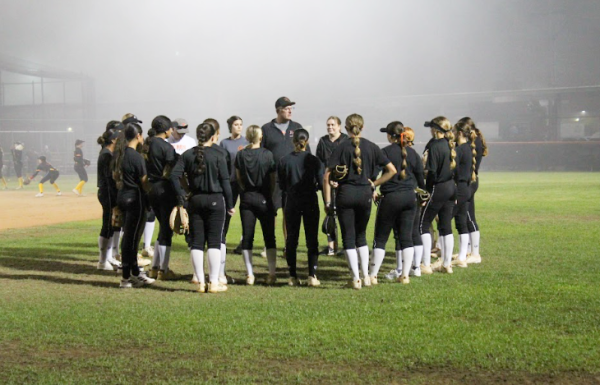Why Juniors Quit Sports
With the increasing amount of stress thrown on teens from school, friends, family, and outside activities, it’s hard to have time for anything else. Many students feel pressure from their parents and other adult figures in their life and often become overwhelmed with constant coaching at home and on the field. Junior year is said to be one of the most stressful years of high school because of the SATs, ACTs, AP classes, and college applications, which inundate students’ school and outside lives. Four juniors at Huntington Beach High School were asked why they quit various sports, and this is what they had to say:
Amana Khoury, a junior on girl’s tennis, explains the reasons why she quit. “Going to tennis and getting home around seven each night did not allow me to be successful in school. Additionally, I was not getting a lot of time on the court during matches, which made it difficult to stay motivated and understand why I was spending so many hours practicing.”
It is often hard to balance the stresses of junior year alongside a sport that takes hours out of someone’s day. When asked what specific outside activities affected her decision, she said that “the biggest factor that affected my decision in quitting tennis was that I [was] taking five AP classes this year and I knew that I would not be able to handle everything. I am also really involved as the vice president of my church’s youth group and some clubs on campus that occupy a lot of my time.”
Outside involvement such as clubs, church, and volunteering also leave little time to complete homework and attend regular practices.
Khoury elaborates on her decision to quit, explaining that “this decision has not helped me at all this year and quitting tennis is definitely the biggest regret of high school. Without something to keep you active and having teammates [and] a sense of community to encourage you every day, it can be hard to focus. Breaks and being active are necessary in order to be productive in all other aspects of life. Although I still find time to be active on most days, it can be difficult to feel motivated and it isn’t as enjoyable when I am not surrounded by my supportive teammates.”
Feelings of regret and loss of motivation can come with quitting a sport in high school. It is common to miss having a break during long hours of schoolwork and some find it hard to stay focused without it.
One ex-player from girl’s soccer, Cora Sjogren described the factors that made her quit the sport she had previously been playing her whole life. “I had been playing since I was five, so I quickly became burnt out,” Sjogren said. “I also did not like my coach very much. I began to hate practice because [they were] late at night and took too much of my time. I didn’t want to waste my parents’ money doing something I didn’t enjoy.”
Money plays a large role in sports with equipment and coaching often costing a fortune. It can be very difficult for parents to pay for an expensive sport and then have their children not enjoy it. “I didn’t have time to do things I enjoyed, such as APA and track… I wanted to make more time to hang out with friends.”
Similar to Khoury, Sjogren clarified, “mentally I am happy that I quit, but physically it was not the best decision. I had no reason to go out and work out if I wasn’t going to soccer practice. But overall, I am very happy that I quit so now I don’t have to stress about it.”
Participating in a sport is both mentally and physically strenuous, but in combination with schoolwork, outside activities, and social agendas, it can become too much to handle.
Lastly, Gian Sereno’s decision to quit lacrosse during his junior year had many similarities with Khoury and Sjogren. “I didn’t have enough time to fit it into my schedule,” he said. “Practices were three hours, five times a week, leaving me with little time to do schoolwork.”
Sports are a big commitment; with practice, games, and even social events, it is hard to have time for anything else. When asked if there was something specific that led him to do this, he further clarified, “I did not get along with the coaches as well as I hoped. After the seniors graduated, practice became less and less enjoyable.”
Finally, Sereno mentioned, “I have more time to focus on school and hangout with friends. I have the opportunity and time to get a job now.”
It is evident that with all these outside stressors for juniors, it is often a challenge to stay dedicated to sports. Whether it be social, school, or parental stress, it usually plays an active role in a student’s extracurricular life. It leaves them with less time and motivation to exercise and attend practice.

Old lacrosse stick left on the ground.


Your donation will support the student journalists of Huntington Beach High School. Your contribution will allow us to cover our annual website hosting costs.
Thank you for supporting our program!






